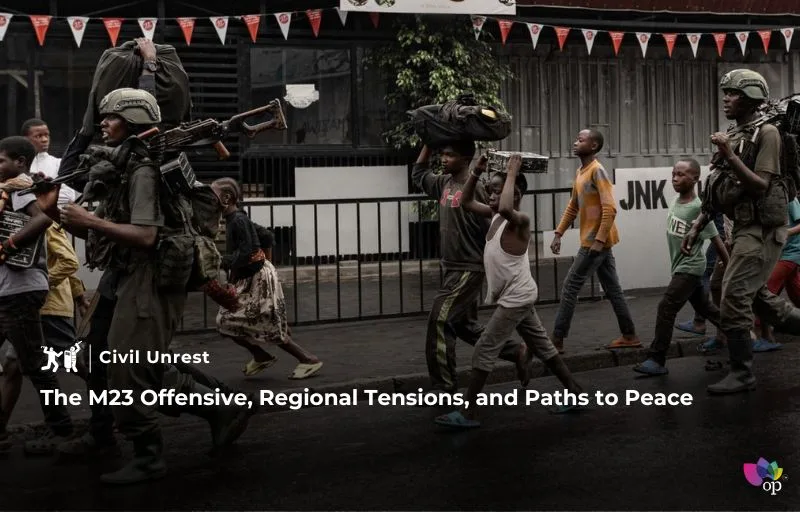Introduction
The ongoing crisis in the eastern Democratic Republic of the Congo (DRC) has reached a critical point, as the M23 rebel group has seized control of key territories, including the strategic city of Goma in North Kivu. This escalation has drawn in multiple regional actors, with Rwanda accused of backing the rebels, while other African nations, such as South Africa, Burundi, and Malawi, have provided military support to the Congolese government. The conflict is further complicated by economic interests, historical grievances, and international diplomatic pressure.
A crucial summit is set to take place in Dar es Salaam, Tanzania, where leaders from the East African Community (EAC) and the Southern African Development Community (SADC) will attempt to broker a solution to the crisis. The meeting will bring together Rwandan President Paul Kagame and his Congolese counterpart Félix Tshisekedi, whose governments have long been at odds over the presence of armed groups in eastern Congo.
The Current Situation
The M23 insurgency, which resurfaced in 2021, has rapidly advanced, capturing significant portions of eastern DRC. The rebel group has gone so far as to establish its own local administration in the areas it controls. After capturing Goma, the rebels have reportedly pushed into neighboring South Kivu province, raising fears that their offensive could continue further west toward the capital, Kinshasa.
In response, the Congolese army has struggled to mount an effective defense. The military, plagued by allegations of corruption and poor training, has suffered repeated setbacks. This has led Kinshasa to seek assistance from regional allies, bringing foreign troops into an already volatile situation. Meanwhile, the humanitarian toll has been devastating. The United Nations has reported nearly 3,000 fatalities and thousands of injuries since the fighting intensified in late January 2024. Sexual violence and displacement have surged, further deepening the suffering of civilians.
Rwanda’s Alleged Role and Regional Repercussions
Rwanda has consistently denied providing military assistance to M23, despite reports from the United Nations and other independent observers indicating the presence of Rwandan troops in eastern DRC. Some reports estimate that Rwanda has deployed around 4,000 soldiers in the region, benefiting from illicit mineral exports, particularly gold and coltan, which are essential for the global electronics industry.
The Rwandan government, in turn, accuses the DRC of harboring the Democratic Forces for the Liberation of Rwanda (FDLR), an armed group composed of Hutu extremists responsible for atrocities during the 1994 Rwandan genocide. Kigali argues that Kinshasa’s failure to neutralize the FDLR poses a direct security threat to Rwanda. This longstanding distrust has made diplomatic negotiations exceedingly difficult.
The involvement of regional military forces has significantly increased tensions, with fears that the conflict could escalate into a broader war. The Economic Community of Central African States (ECCAS) has condemned Rwanda’s alleged support for M23 and called for an immediate withdrawal of foreign troops from Congolese territory. The organization has also urged for the establishment of humanitarian corridors to provide aid to displaced populations.
Diplomatic Efforts and International Pressure
Ahead of the Tanzania summit, diplomatic pressure is mounting. Kenyan Foreign Secretary Musalia Mudavadi has emphasized the need to merge previous peace efforts led by Angola and Kenya into a single, coordinated initiative. While past attempts at negotiations have failed, some observers see the upcoming summit as a crucial opportunity to de-escalate tensions.
The United States has also entered the diplomatic fray, warning that sanctions may be imposed on officials from both Rwanda and the DRC if they fail to cooperate in de-escalating the crisis. A diplomatic note sent to Kenya, which is involved in mediation efforts, highlights the necessity of Rwanda withdrawing its military forces and weaponry from Congolese territory as a prerequisite for peace.
The Broader Implications of the Conflict
The conflict in eastern DRC is not just a local or regional issue; it has significant implications for global security, economic stability, and humanitarian efforts. The region’s vast mineral wealth makes it a focal point for economic exploitation, while the involvement of multiple armed groups and foreign actors complicates peace efforts.
Moreover, the displacement crisis is worsening, with thousands of civilians forced to flee their homes. If the fighting continues, it could further destabilize Central Africa, potentially drawing in additional countries and exacerbating existing ethnic and political tensions.
Conclusion: Is Peace Possible?
The crisis in eastern DRC is a complex web of historical grievances, economic interests, and geopolitical maneuvering. While the Tanzania summit represents a significant opportunity for diplomacy, achieving a lasting solution will require substantial commitment from regional and international stakeholders.
A comprehensive approach must include:
- A verifiable ceasefire and withdrawal of foreign troops
- A unified peace process that combines previous efforts from Angola and Kenya
- Economic reforms to address the illicit exploitation of minerals
- Strengthened governance and anti-corruption measures in the DRC military
- Continued humanitarian assistance to affected populations
Without these measures, the cycle of violence may persist, with devastating consequences for millions of people in the region. As world leaders and regional players convene in Tanzania, the hope remains that a diplomatic breakthrough can prevent further bloodshed and bring long-overdue stability to eastern Congo.
References


